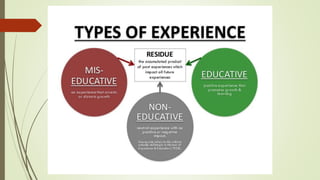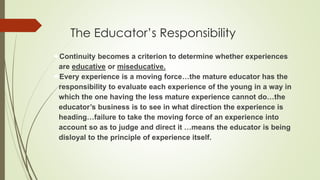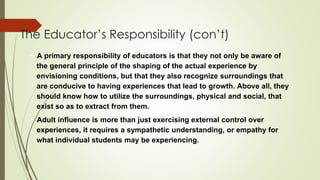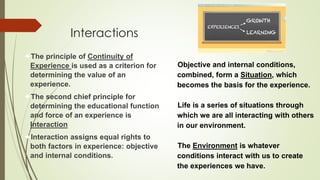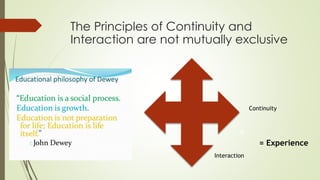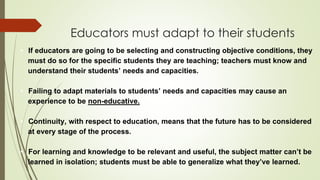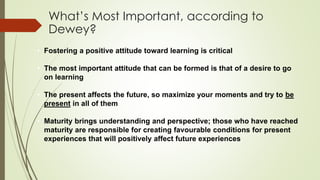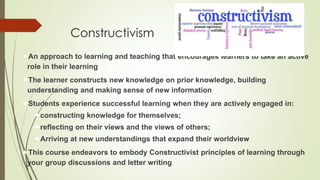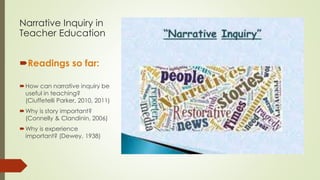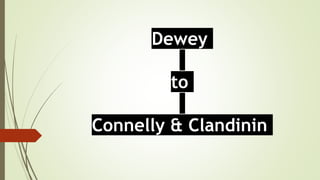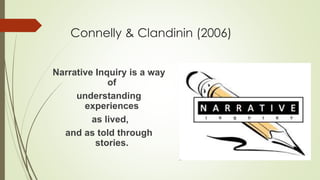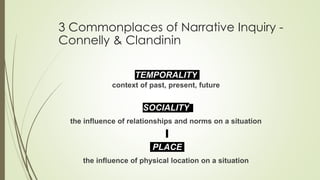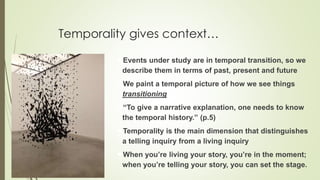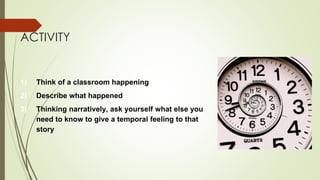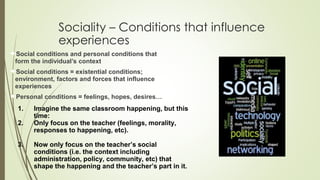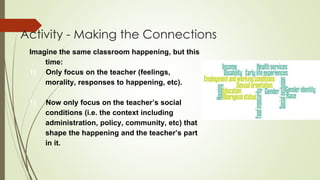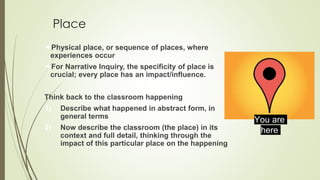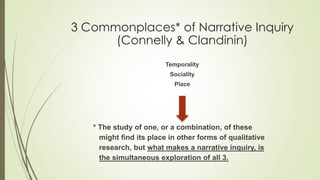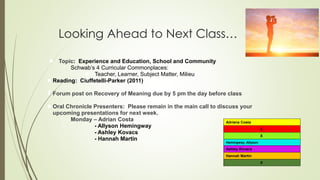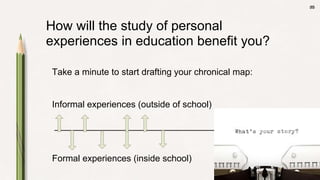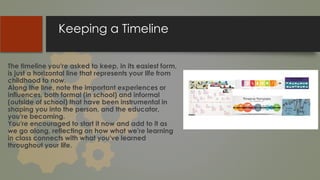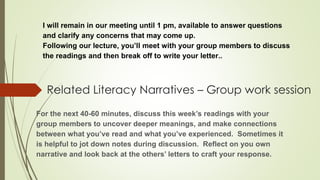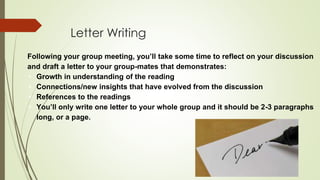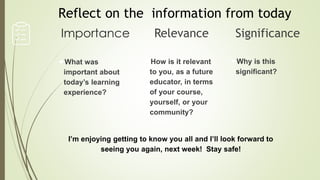The document outlines the agenda and topics covered in a class about narrative inquiry. The class discussed John Dewey's views on experience and education. It also covered Connelly and Clandinin's three commonplaces of narrative inquiry - temporality, sociality, and place. The class involved activities applying these concepts to classroom experiences and discussed the importance of continuity of experience. Students were assigned to keep a timeline of experiences and give an oral presentation the following week.
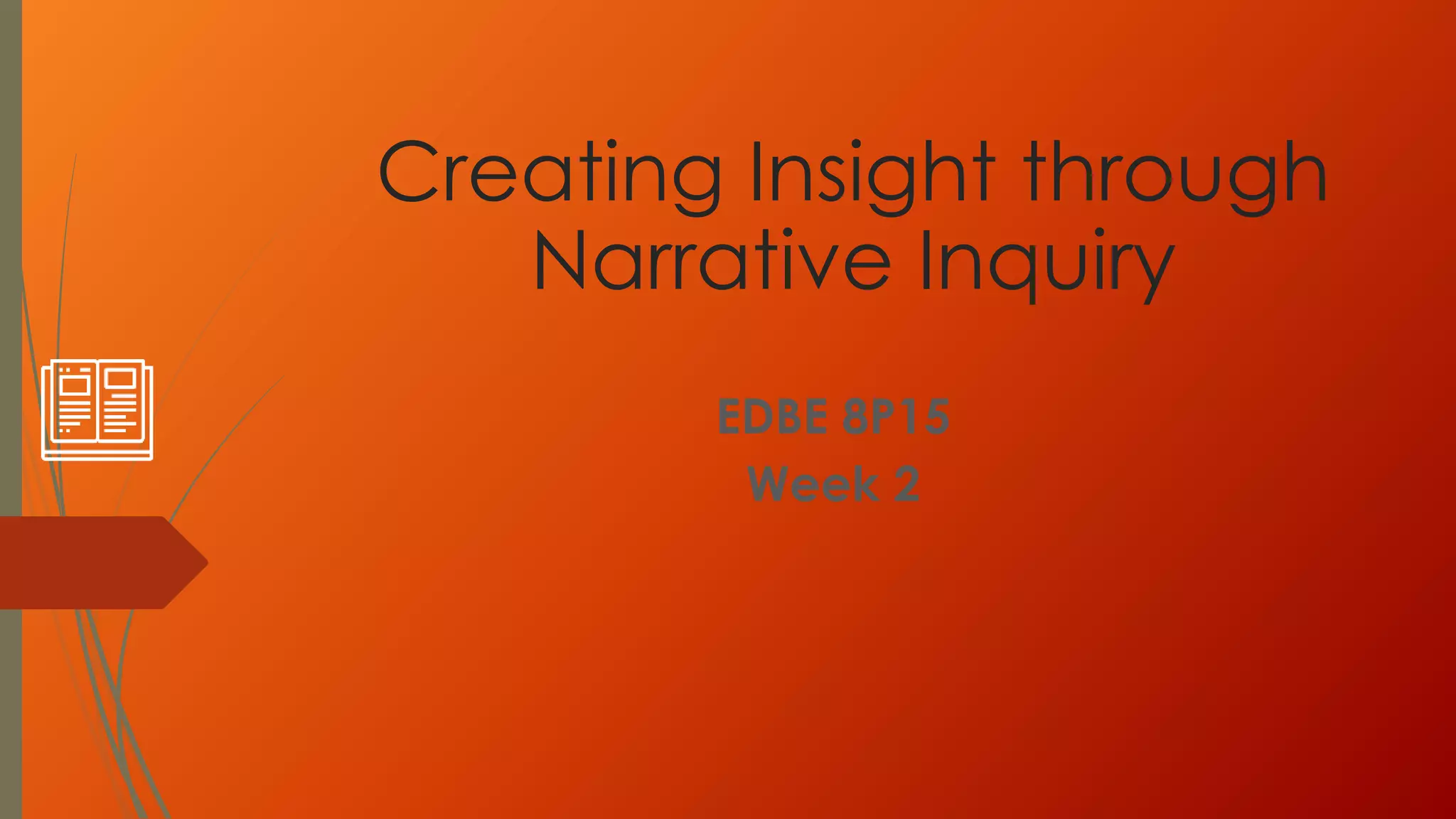
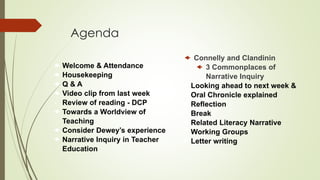
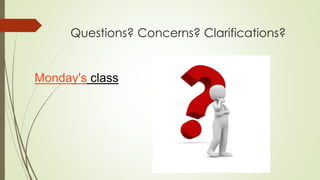

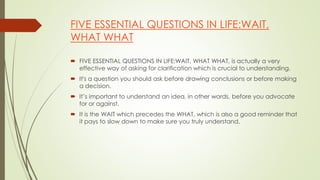
![Reading Review - Writing & Becoming [a Teacher] - DCP
- Similar to journal writing but, with other practitioners, writing becomes “a space of
change and growth for teachers where diversity can find expression.” (Elbaz,
2002, p.3)
- Narratives of Experience (our stories) help to “reconcile and bridge the theory-
practice divide.” (DCP, 2010, p.1250)
- A sense of ‘belonging’ is important for students and Teacher Candidates - feeling
left out or unwelcomed at any age inhibits growth and well-being. (Citizenship
Canada (2000, retrieved September 2006)
- “Belonging is indisputably a key indicator for success in our human condition.”
(DCP, 2010, p.1253)](https://image.slidesharecdn.com/8p15lessonweek2mer-210920003839/85/8P15-Week-2-MER-6-320.jpg)
![Reading Review - Writing & Becoming [a Teacher] - DCP
● Your group discussIons are going to be ‘critical dialogues’ that
“allows for thought to ‘play freely’, for deeper meaning and
communication, with no hierarchy at play, no elusive right answer.”
(DCP, 2010, p. 1250)
● These critical dialogues are explored through peer writing and
reflection of concepts made relevant by each participant’s
exploration of teacher knowledge and development.](https://image.slidesharecdn.com/8p15lessonweek2mer-210920003839/85/8P15-Week-2-MER-7-320.jpg)
![Reading Review - Writing & Becoming [a Teacher] - DCP p.1254
● Relational Knowing (Hollingworth, et al., 1993) - understanding the relationship
between home events and school performance - teacher knowledge is transformed
from content and curriculum and academics to the importance of relationship,
influencing ideas for future classrooms.
● Relational Growth - fear of failure gave way to an understanding that fear is a part of
the process of becoming a teacher; there is safety in the groups and Teacher
Candidates can be vulnerable; by sharing their fears, they empathized and eased
them in a supportive network.
● With each letter, you can review and rethink your own thoughts with fresh eyes,
and have the added benefit of viewing those experiences from your colleagues’
perspectives, as well](https://image.slidesharecdn.com/8p15lessonweek2mer-210920003839/85/8P15-Week-2-MER-8-320.jpg)
![Reading Review - Writing & Becoming [a Teacher] - DCP - (p 1256)
● Gratitude - for the literacy narratives - not just a reflective journal
• form relationships, without which life is meaningless and empty
• therapeutic - an outlet; true friends; healing
• teacher candidates can explain their experiences and views without
interruption - listening, reflecting critically, then responding
• Relationships were brought to a deeper level and teacher candidates
were connected through the power of language and critical thought
• deeper knowledge re: significance of teachers with respect to
learners
• letters helped teacher candidates come to see themselves better
as humans and as developing teachers in relationship to others](https://image.slidesharecdn.com/8p15lessonweek2mer-210920003839/85/8P15-Week-2-MER-9-320.jpg)
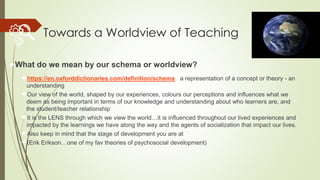
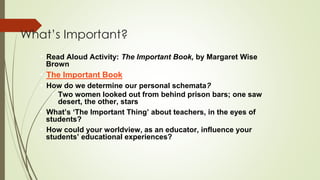
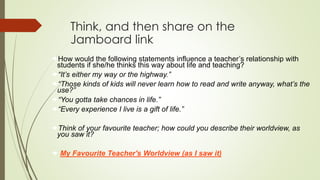
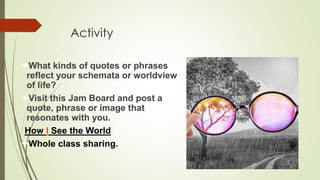
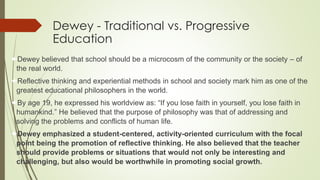
![Continuity of Experience
• The principle of Continuity of Experience means “that every experience
both takes up something from those [experiences] which have gone
before and modifies in some way the quality of those [experiences]
which come after.” (p.13)
• Can you think of any examples?
• Growth means growing or developing intellectually, physically and/or
morally.
• Growth as education and education as growth.](https://image.slidesharecdn.com/8p15lessonweek2mer-210920003839/85/8P15-Week-2-MER-15-320.jpg)
